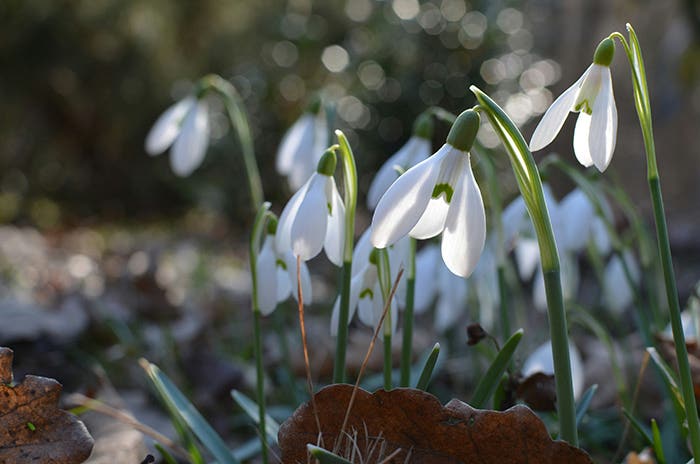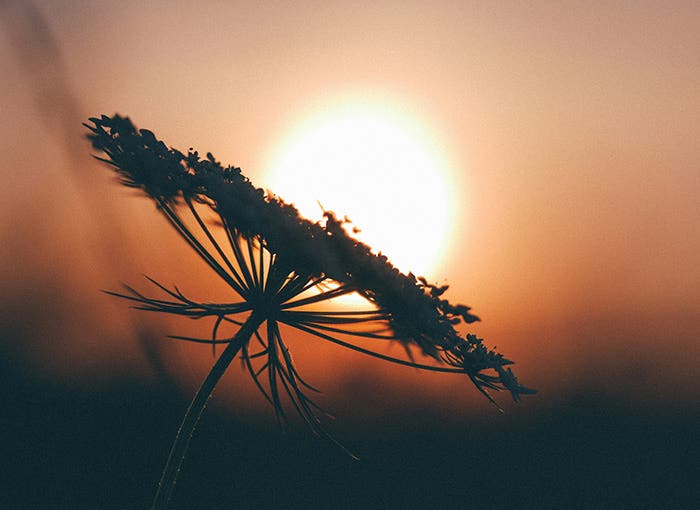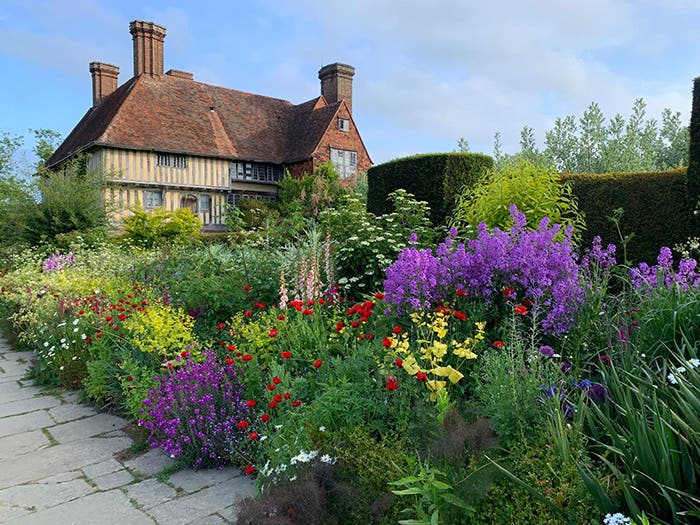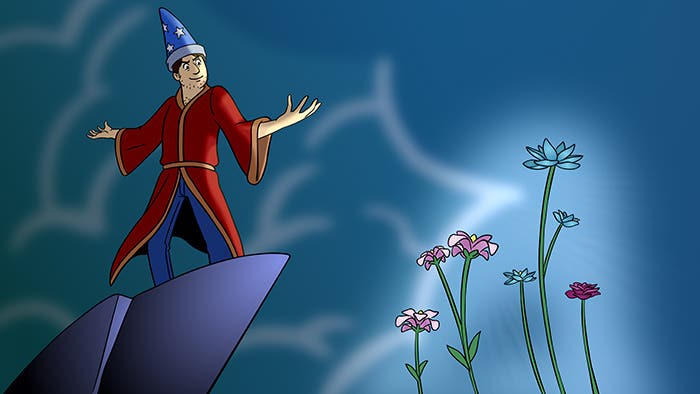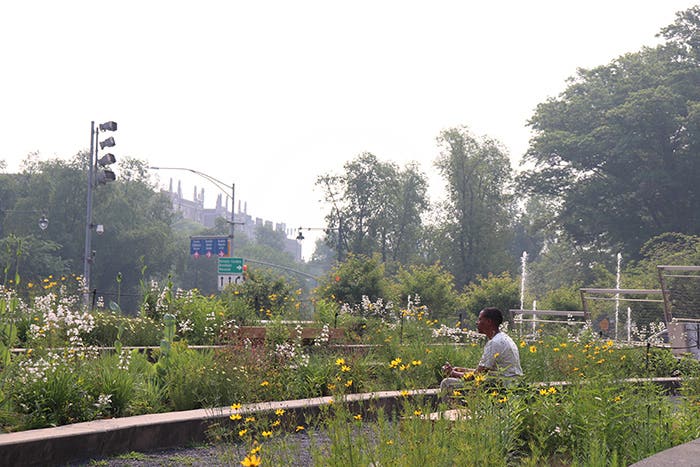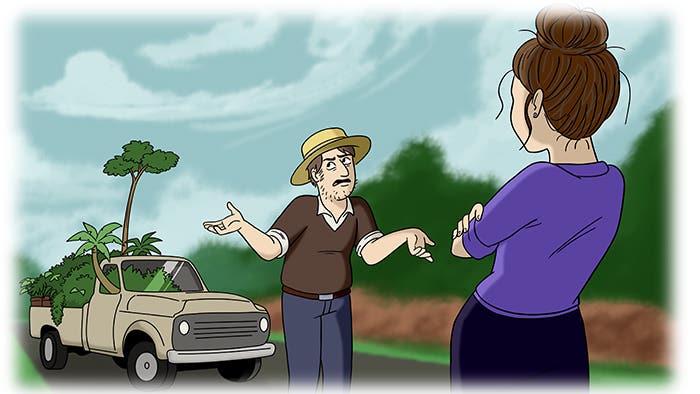Carol Reese recently retired from her career as an Extension Horticulture Specialist based at the University of Tennessee’s West Tennessee AgResearch and Education Center. She is a popular writer and speaker, mixing humor with solid gardening information. She lives outside of Jackson, Tenn., with her beloved rescue dogs. In the summer of 2021, I interviewed Carol for my Garden Views column in Horticulture.
Scott Beuerlein: How and when were you first captured by horticulture’s gravity?
Carol Reese: My love for the green world began on our farm and the neighbors’ farms that surrounded us in rural Mississippi. When I was still a wee girl, my mama would take me to the fields and the woods, turn me ’round and ’round and say, “Now which way is home? As soon as I know you can find your way home, I’ll turn you loose to roam the farm.”
And she did, and I did, on horseback once I got Diamond for my tenth birthday. That mare loved exploring as much as I did, since we often stopped to let her munch on choice bits—osage orange, mulberries or tender clovers. Diamond and I would often be gone most of the day, trying to find where creeks began and the like. Sometimes I rode home with plant “treasures” in my pocket to show my mother. (By the way, dead-ripe persimmons don’t arrive well when stashed in jacket pockets and transported on a galloping horse!)
We grew crops for silage and hay to feed the dairy herd, and a one-acre vegetable garden for the humans, along with several fruit trees. I had a grandfather who showed me where to find buckeyes, and with his pocketknife peeled cold sweet turnips for me as we stood in the fall garden. That dairy farm became an orchard in the 1980s, starting with blueberries, but now is primarily Asian persimmon, along with muscadines, apples, pears and Asian pears. My little brother runs it as a U-Pick after my parents passed on.
SB: What horticultural education did you receive?
CR: I came back to school in my mid-30s. I had saved just enough brain cells from my partying years to ace the plant courses that seemed easy because I was fascinated with all things plant. I was offered a teaching assistantship to pursue graduate degrees. From that point, the career path rolled out in front of me. I never had to look for a job again.
The formal stuff is valuable and left me with an appreciation for the people that have magnificent brains that can grasp complexities of chemistry and statistics, but I will never forget a grizzled nurseryman who had no time for a young, female horticulture specialist’s assistance. I walked out to his field and introduced myself, but he refused to even look up. He said aloud to the weeds he was pulling, “People that got all their learnin’ from books don’t know shit.”
I agreed with him. I recited my farm background, the garden center years of employment, the establishment of the orchards that replaced our dairy operation, the irrigation systems I installed, the thousands of blueberry plants (and some ornamentals) I propagated for liner sales under a homemade mist system, and when I got to “I can drive a tractor, I can back trailers and I can change implements,” he finally looked up.
Of course, I’m proud of my degrees, which could have included a PhD if I had ever written the dissertation, not knowing until I sat down to write it that data were missing from malfunctioning equipment and it would take a whole ’nother season to repeat the field work for the experiment. I had already taken a job and moved away.
SB: Any special folks you met early in the green industry?
CR: Plato Touliatos jumps first to mind. He was a huge mentor just as I started my career with UT. He sponsored a Memphis gardening show and I became the host, leading to years of enlightening friendship with him and his wife, Sarah. Plato lived up to his name—a philosopher and a brilliant, discerning man. He understood how the natural world works but also human nature, and his ability to encapsulate big concepts with simple language made for many memorable moments of revelation. I found myself thinking often, “Of course! So true! Why didn’t I think of that?!” I quote him endlessly.
When I first met Plato, we walked around his several acres of garden center, sales areas interspersed with pockets of display gardens, some intentional and others where plants intended for sale had instead decided to make themselves at home. Of course, he was testing my plantsmanship. He gestured to a smallish tree next to a little pond. “Do you know this one?” he asked. I looked up, and, though I had never seen one in my life, the words, “Is that an Ogeechee?” left my lips. I swear that the tree whispered its name to me, but from that moment on, he thought I was a great plantsman, though I was (and am) not. I am mediocre at best, and occasionally lucky with a call.
At one point he was hopeful I would be the person to take on his fabulous nursery/landscape/garden center/wildlife refuge. I was chicken and determined to stick to the safety of my state job. During his campaign to change my mind, he took me to several of his more interesting landscape jobs, like to “consult” with Morgan Freeman at his place in north Mississippi. Another time, it was to help a wealthy retiree decide where to site his house on some beautiful rolling property near Oxford, Mississippi. I watched Plato take in the views, study the path of the sun, choose a site and orient the house to take advantage of it surrounds.
Gardeners of a certain age may remember Roger Swain was Horticulture’s science editor back when I wrote Q&A for the magazine. Roger is sharp of tongue, quirky and very sure he is right, but that might also describe Carol Reese, so sometimes there were hot and bright fireworks. I would sometimes appeal to the overall editor. On rare occasion, I won a round and he was overruled, but Roger is extremely knowledgeable and I learned a lot from him.
SB: What did you love most about the job?
CR: Plant people! Gardeners are nurturing optimists, often freewheeling, nature-loving, philosophical sorts from all walks of life. They don’t mind getting dirty. They create food and beauty with their hands. They buy sugar for tiny little birds. There is enough competition among gardeners to make it interesting but not cutthroat. Usually.
Extension required teaching, which I love, and writing, which I love. It led to me being the Jackson Sun gardening/nature columnist, which I did weekly for about 20 years. Still today, people approach me in grocery stores and tell me of a favorite column. Total strangers at a gas pump will start a conversation with “Hey Carol! I was thinking of you when…” It amazes me that something I wrote years ago altered something in the way they see the world. People I have never met! How can I not be grateful to have had this platform to share those thoughts, which of course, were gifts shared with me from others. I am simply part of the ripple.
I also enjoyed most of the collaboration on the new Master Gardener handbook, though sometimes my sarcastic editing style with some of the other writers was not appreciated. Imagine that!
SB: You are a tremendous speaker capable of both providing substance and true belly laughs. Did this come naturally to you?
CR: I had to be funny; I was ugly. How else is a girl with no cleavage gonna get attention? Hell, I didn’t hit puberty until I was a high-school junior, and was a senior when I finally got contact lenses and free of braces. I was elected Wittiest Girl sophomore, junior and senior years, but I never had anyone ask me for a date, so had never even been to the Who’s Who Prom. My senior year, an older brother talked a friend into taking me to the prom and this friend happened to be the Yellowjackets quarterback. After that I was suddenly “date-able”, but in my mind’s eye, I am still that homely girl who needs to be funny to be noticed.
Actually, my father was a funny guy, and most of his seven kids got the funny gene. Daddy said he married Mama because she was a good laugher. I think the memory of his quips and her happy laughter imprinted me early.
I have also been told that I say things other people wouldn’t dare, though it seems to me what I’m saying is normal. I blame my big sister, Cecilia, who started first grade just before I turned two. She thought of me as her personal baby to raise and started teaching me what she learned each day at school, so in elementary school during reading classes, I was sent to the library because I kept handing in my readers and asking for better books. Reading through all the books in the library that were beyond my years made me believe I was talking the way rest of the world talked. I didn’t know any better.
SB: I’ve seen people who vociferously disagree with some of your points literally in tears from laughing so hard. Not a bad way to handle conflict, eh?
CR: What? Who would disagree with me? Bless their hearts!
SB: Where do you think the role of Extension in horticulture is heading?
CR: I do see promising new folks getting into horticulture especially with the “back to the land, grow your own” movement, which recalls my hippie days, though it was difficult to be a hippie in Mississippi. And Covid pulled a lot of people into, or even back to, gardening. Requests for home horticulture information is by far the biggest demand from county offices, but most do not have a horticulture agent—while they all have an ag agent (when farmers are now less than two percent of the population?). It all comes down to us having to prove horticulture information’s worth in dollars. Telling a new gardener what to do about hornworms or how to properly limb up a growing tree is worth—what? You tell me. Helping someone identify a wildflower just because someone wants to know its name might give them a lifetime of pleasure, but what does that do for the GDP? It’s all about the financial impact. Knowledge for its own sake, or gardening as meditation or art form is not valued. Sadly.
SB: What is horticulture doing right?
CR: Thinking of the bigger picture, which is not a new movement, really. My grandparents and parents taught me to love and value the bees and to see spiders as allies that kill bothersome flies. They liked and even had names for the snakes in the barn that kept down the mice and rats that would have eaten the corn meant for the horses. The move to kill, kill, kill “insect pests” came when products came to market that made it easy, and advertising that as a good idea made lots of people rich. More people are becoming aware that we are in danger of losing what E.O. Wilson describes as “the little things that run the world.” The pendulum is moving back to recognizing their value, though probably too late.
SB: What are we doing wrong?
CR: Same story as politics. Money talks. Misinformation rules.
Money determines what shows up first on a google search. People get duped into products and practices that aren’t common-sense horticulture: root starters and weed fabric and soil amendments and turf-weed control and mosquito plants and anything that will sell product. I don’t know how we can teach people not to be so gullible. One at a time, I guess, and that is not fast enough. We are losing the battle, and I don’t know what to do about it.
Plant tags lie; they lie, mostly by omission. Regional adaptation is ignored. Beautifully grown living plants go home with people ignorant of the importance of siting, planting and proper aftercare. They think watering is a schedule, and have no idea it is about paying attention to environmental processes. Their first instinct when a plant is unhealthy is to dump fertilizer or some other product on it, which once again, makes somebody more wealthy. They have not learned to use their eyes and critical thinking to even notice the many plants thriving without “products” in the so-called “terrible clay soil” that so well supports plants if you don’t mess it up.
Well-meant but ridiculous myths run rampant. Dawn and vinegar and salt (a half dozen tablespoons of salt will kill you in short order) have a cult following, but a little judicious use of glyphosate means I love (or work for) Monsanto and don’t care about farmers across the oceans, or our bees.
GMO ignorance is rampant (right up there with fear of gluten). Cultivars are the spawn of Frankenstein crossed with Medusa, and anything “manmade” is terrible, said the nativist pounding on her keys as she chews on a highly bred, delicious and nutritious carrot or some tasty broccoli. Thank you, Mr. Burpee, you horrible freak show, you…
SB: So, you’re retired and living on 100 acres of idyllic Tennessee with a pack of rescue dogs. Reflect a little on this.
CR: I will forever be incredulous that I pulled this off, and that is inspiration for one of the books I want to write—for the person living here after I’m dead. I think about that person a lot. Will they wonder how this house came to be? Will they care that it was the dream of a little Mississippi farm girl who cried when told she could not bring home another lost dog? Do they want to know it is the happy ending of a troubled woman’s comeback story?
I hope they embrace its purpose—a place to bring embarrassed, abandoned dogs and make them proud owners of property and their very own human being; a place where dogs have the right to be dogs, as they were before modern humans decided they must be contained by leash or fence. Here they can chase deer or rabbits, swim and roll in the dirt, howl at the moon or bark at any gatecrashers to our kingdom. The dog joy does have its cost in some fine, expensive plant material on occasion, but that is far outweighed by the laughter and pleasure they give me every day. Dogs are happy people, and live in the moment.
But this place was also freedom for me. Here I can allow my body and my mind to meander, unconfined and unconcerned if I am meeting anyone’s expectations. My closest neighbors are the thousands of non-human living things that lived here before I carved out my spot. I thought I would love being able to play really loud music here, but it turns out I would rather listen to the music they make.
When I first bought the property, someone asked me what I intended to do with all this acreage. I said, “Look at it.” I forgot to say, “Listen to it.” If I were blind, I would know what season it is from all the voices in the valley. Even breezes and raindrops change sounds through the year, pattering soft new growth or slapping older, papery leaves. It instructs me. Building this house is the best thing I have ever done for myself. It is the love of my life.
It is proof to that homely, insecure girl that she had the goods, and did the hard work to reach a lifetime goal, but it wasn’t all me. There were family members that never gave up on Carol, and professors at school that saw something in me before I saw it. It was the many instant and generous friends that crowd the gardening world, sharing knowledge and insights, some that forever shaped my life. Some will never know how much…like Plato.
His thoughts were in my head for the several weeks I spent walking this land until I found the site that spoke to me. It was Plato that instructed me as I roughed out the house perimeters, choosing the rooms and window placements that take advantage of the views. I held a compass in my hand, so that I am touched by first morning light as I open my eyes. Evenings, I knew I would be at the kitchen sink fixing supper, so the windows there are to take in the late angles of golden light over the pond. That is all Plato. I wish I could show it to him, and to all the others that led me here.


